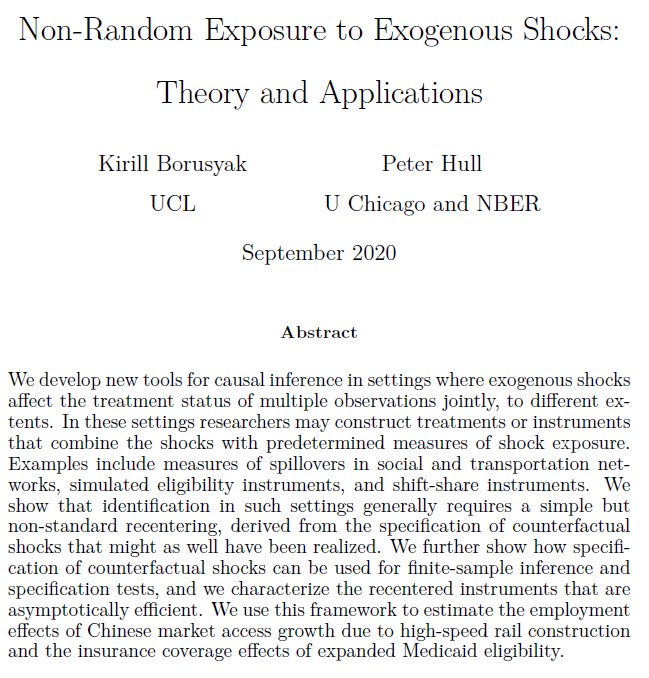
Assistant professor @AREBerkeley: international trade and applied econometrics. (Ex @EconUCL, @IESPrinceton, @HarvardEcon, @NES_Moscow)
How to get URL link on X (Twitter) App


https://twitter.com/XJaravel/status/1866173299920687398@instrumenthull @XJaravel While @paulgp measured that 1/8th of all recent IV papers mention shift-shares, we think it's a lot more


 We make 4 points about shift-share IVs under heterogeneous effects:
We make 4 points about shift-share IVs under heterogeneous effects:https://twitter.com/instrumenthull/status/1682084118333358080There are two types of weights in regressions: "ex post" (conditionally on treatment realizations) and "ex ante" (before treatments are realized)

 @XJaravel Let’s start with the effects on costs-of-living, which are understood less well
@XJaravel Let’s start with the effects on costs-of-living, which are understood less well
https://twitter.com/borusyak/status/1394680063384248320

 @XJaravel @jannspiess Event studies are diff-in-diff research designs with staggered adoption of treatment:
@XJaravel @jannspiess Event studies are diff-in-diff research designs with staggered adoption of treatment:
 Examples:
Examples: